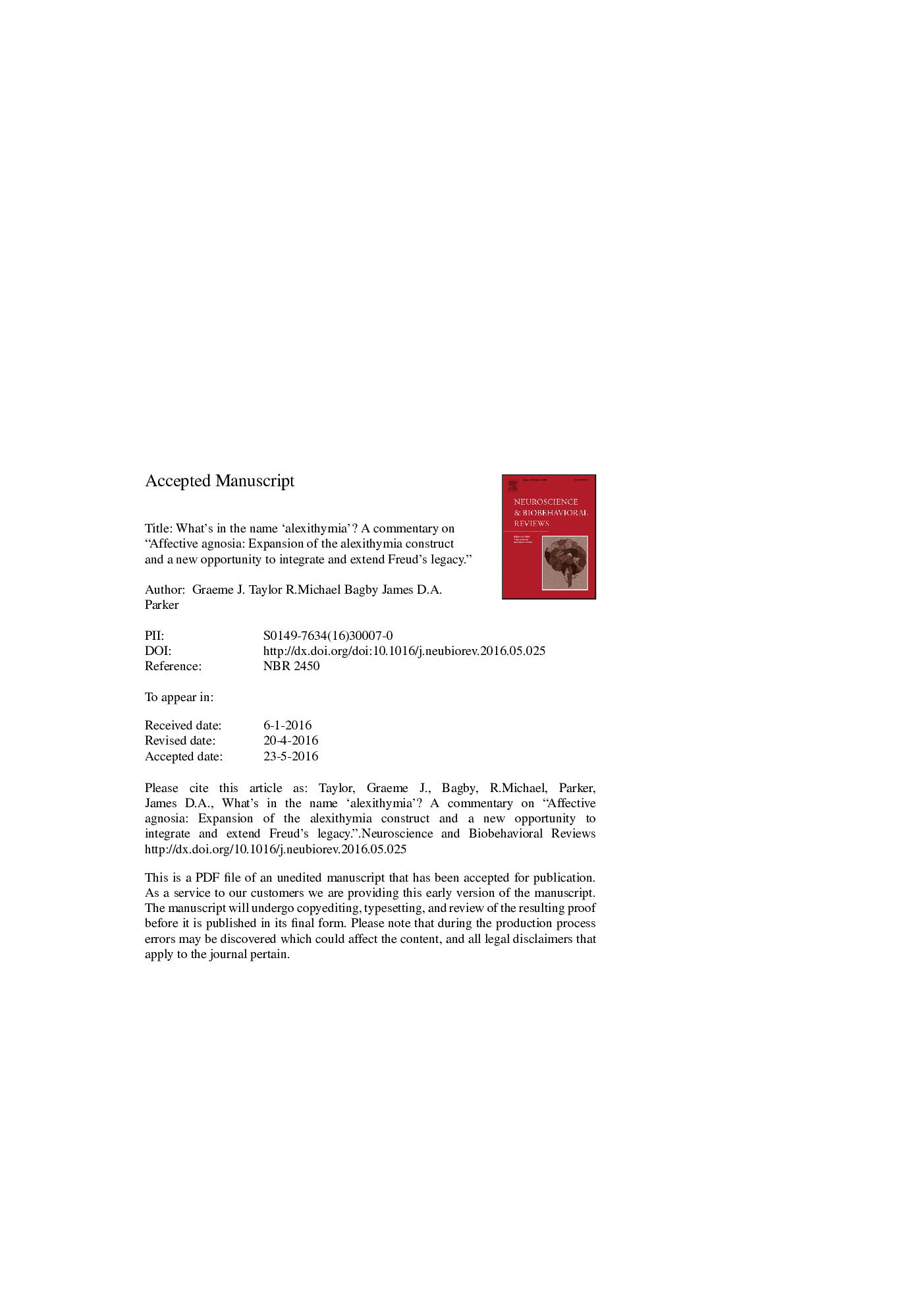| Article ID | Journal | Published Year | Pages | File Type |
|---|---|---|---|---|
| 7303119 | Neuroscience & Biobehavioral Reviews | 2016 | 69 Pages |
Abstract
The recent proposal of a new type of agnosia termed 'affective agnosia' extends Freud's legacy and captures the concept of not knowing one's own emotions. This concept links well with the theory of levels of emotional awareness and maps onto a hierarchical model of neural substrates of emotional experience, but does not encompass the pensée opératoire component of the alexithymia construct. Moreover, identifying agnosia and anomia subtypes, which connotes a categorical conceptualization of alexithymia, is inconsistent with the dimensional nature of the construct. We describe a more widely accepted definition of alexithymia, and argue that although aptly descriptive, the concept of affective agnosia does not advance the theory, measurement, and treatment of alexithymia. A review of alexithymia literature indicates that impairment in the mental representation of emotions has been a central aspect of alexithymia theory since the concept was introduced, and guided the development of the Toronto Alexithymia Scale and other measures of the construct. Moreover, techniques to enhance mentalization of emotions have been used by psychotherapists for several decades.
Keywords
Related Topics
Life Sciences
Neuroscience
Behavioral Neuroscience
Authors
Graeme J. Taylor, R. Michael Bagby, James D.A. Parker,
